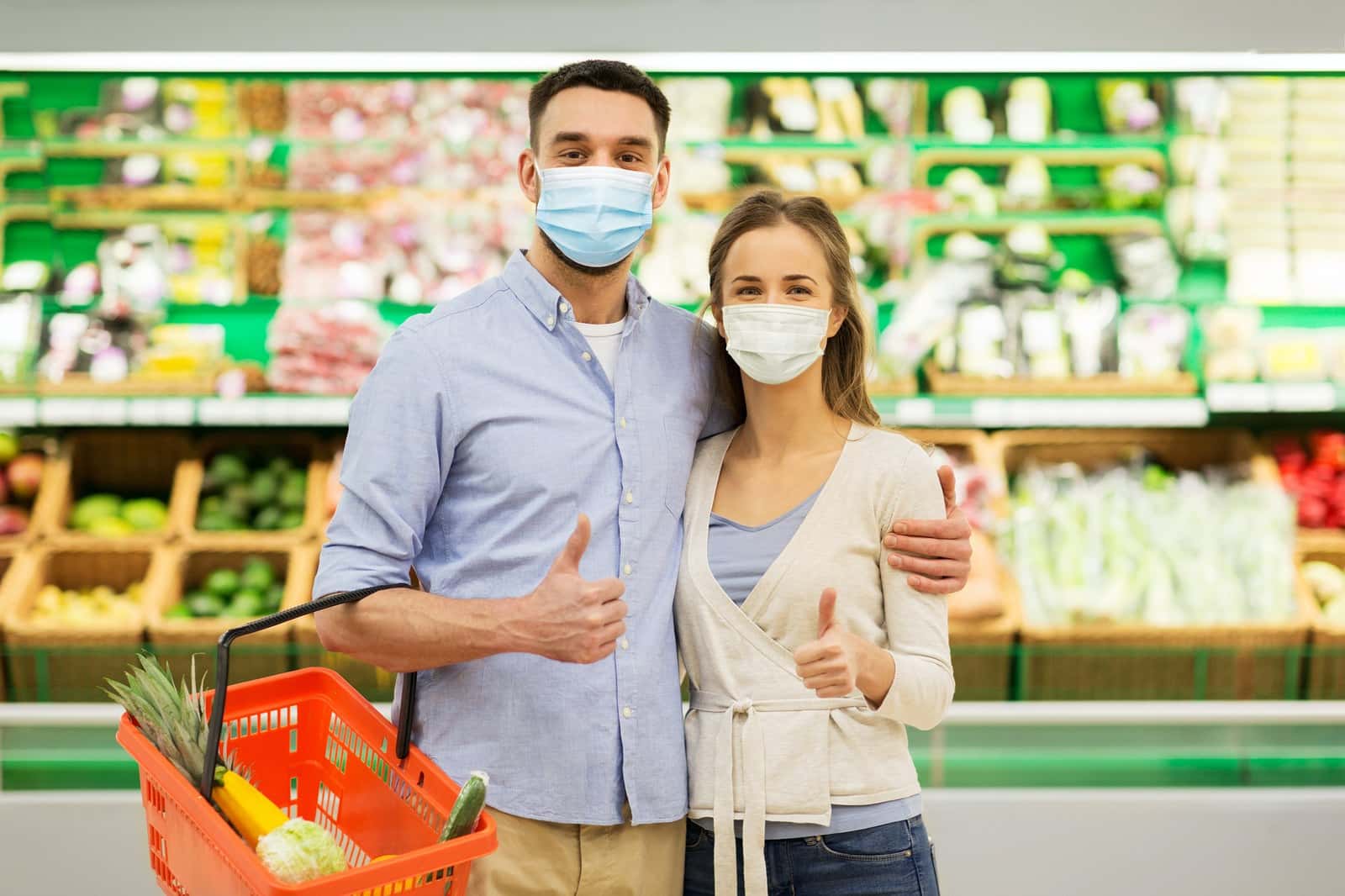
When communities want to slow or stop the spread of respiratory infections, they may recommend that everyone wear a face mask in public. This recommendation has been surprisingly controversial for COVID-19, however. The CDC changed its policy as the pandemic took off, which led to public confusion. Now the CDC is urging people to wear masks any time they ride on airplanes, trains, buses, subways, taxis or ride-share vehicles.
According to the agency, if we all mask up, we can have
“confidence that we can once again travel more safely even during this pandemic.”
Amtrak, airlines and most public transportation systems already advise or require facial coverings. In fact, US airlines have kept hundreds of passengers off planes because they were not wearing masks. Keep reading to learn how well face masks protect you when you are traveling.
Face Masks on Airplanes Can Prevent COVID-19:
New data demonstrate that wearing masks is effective against transmission of SARS-CoV-2 on airplanes (Journal of Travel Medicine, Sept. 25, 2020). In Hong Kong, officials test every passenger for COVID-19 upon arrival. The travelers are then quarantined in single rooms for two weeks and tested again. This strategy has helped Hong Kong control the pandemic in a densely populated city.
As a side effect, the resulting data show researchers who flew with an infection before symptoms started to show up. Moreover, it allows them to track others on the same flight to see if they came down with it. Scientists at the University of Alabama at Birmingham concentrated on passengers of Emirates Airlines, because its masking policy is strictly enforced.
Between late June and early July, Emirates flew five flights from Dubai to Hong Kong that each had at least seven infected passengers on them. These eight-hour trips could have been super-spreader events. However, with the masking policy in force, none of the 1500 to 2000 other passengers or crew became infected.
Below, we review previous evidence that face masks can protect us if we all wear them.
Does a Face Mask Protect You or Others in Your Space?
Q. Does wearing a face mask protect you from airborne viruses or protect others from you if you have a virus? Or both?
A. There is still surprising controversy surrounding this incredibly important question. Most public health experts agree that droplets or aerosolized particles are the primary source of transmission of the coronavirus. Speaking, laughing, cheering, coughing or singing can spread the virus to others. Trapping the droplets should reduce the spread.
An article in the Annals of Internal Medicine (May 22, 2020) acknowledges that there remain unanswered questions about transmission. Nevertheless, these international experts suggest that many face masks can reduce the amount of virus a carrier puts into the air. Cloth coverings may also reduce the risk that people will breathe in lots of virus-laden aerosol particles.
Advantages of Community-Wide Face Covering:
Epidemiologists usually focus on large groups of people more than on individuals. They point to the efficacy of community-wide face mask use for deterring the spread of COVID-19 in Hong Kong (Journal of Infection, April 23, 2020). One advantage of having an entire community adopt this practice is that there is no stigma for wearing a face mask when everyone else is, too. In addition, people who don’t yet realize they are infected are far less likely to spread the disease when they are wearing a face mask.
One study that demonstrated the value of wearing a face mask to protect both you and others found that the stronger N95 masks worked especially well. Although these are currently in short supply, we think that the sooner all health workers and then the public at large have access to high-quality N95 face masks the better. Until then, ordinary face masks could be very helpful. Even with a highly effective face mask to protect you, you still need to wash your hands and avoid contact.
Citations
- Freedman DO & Wilder-Smith A, "In-flight transmission of SARS-CoV-2: A review of the attack rates and available data on the efficacy of face masks." Journal of Travel Medicine, Sept. 25, 2020. doi: 10.1093/jtm/taaa178
- Clase CM et al, "Cloth masks may prevent transmission of COVID-19: An evidence-based, risk-based approach." Annals of Internal Medicine, May 22, 2020. https://doi.org/10.7326/M20-2567
- Cheng VC-C et al, "The role of community-wide wearing of face mask for control of coronavirus disease 2019 (COVID-19) epidemic due to SARS-CoV-2." Journal of Infection, April 23, 2020. DOI: 10.1016/j.jinf.2020.04.024

